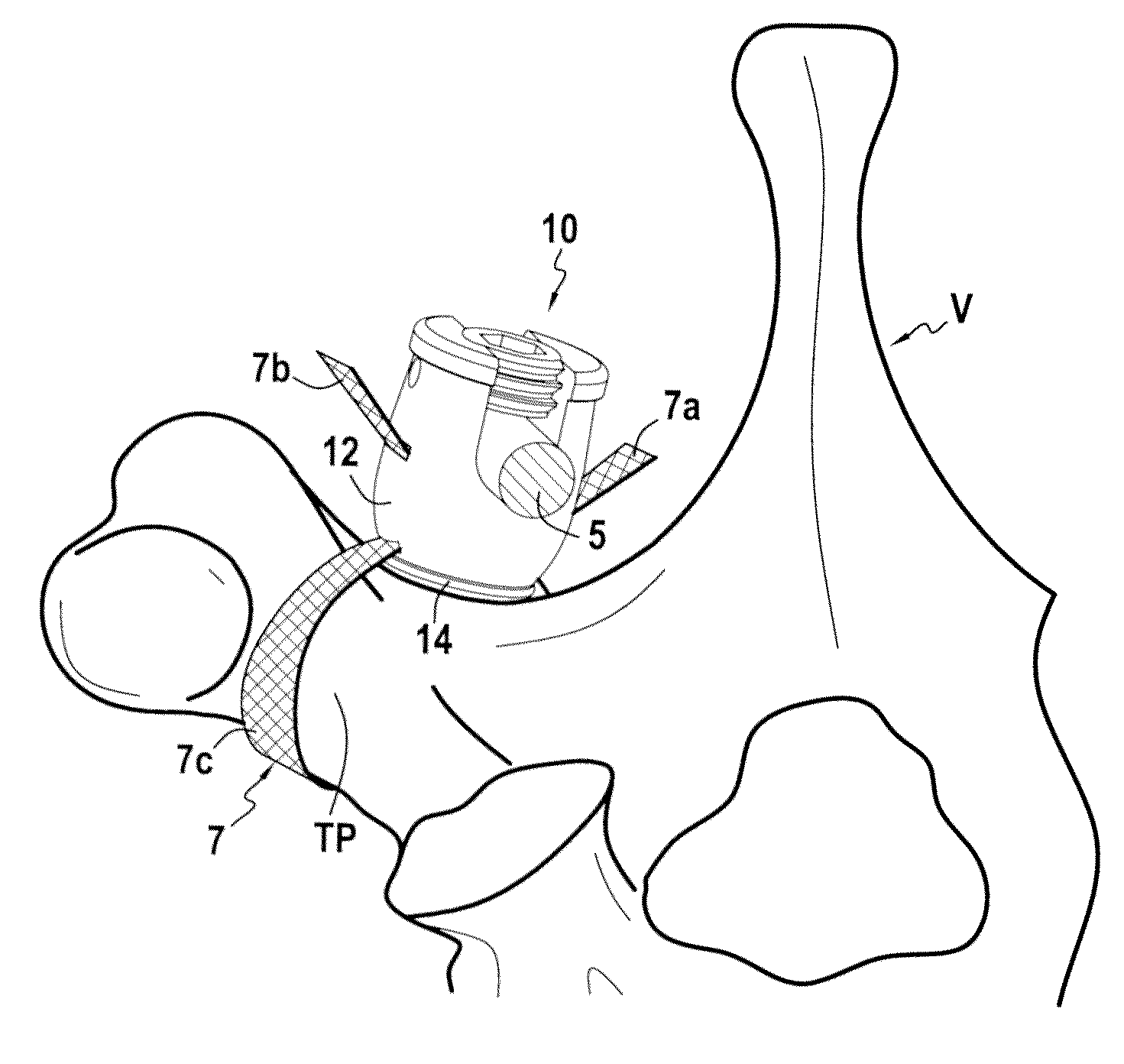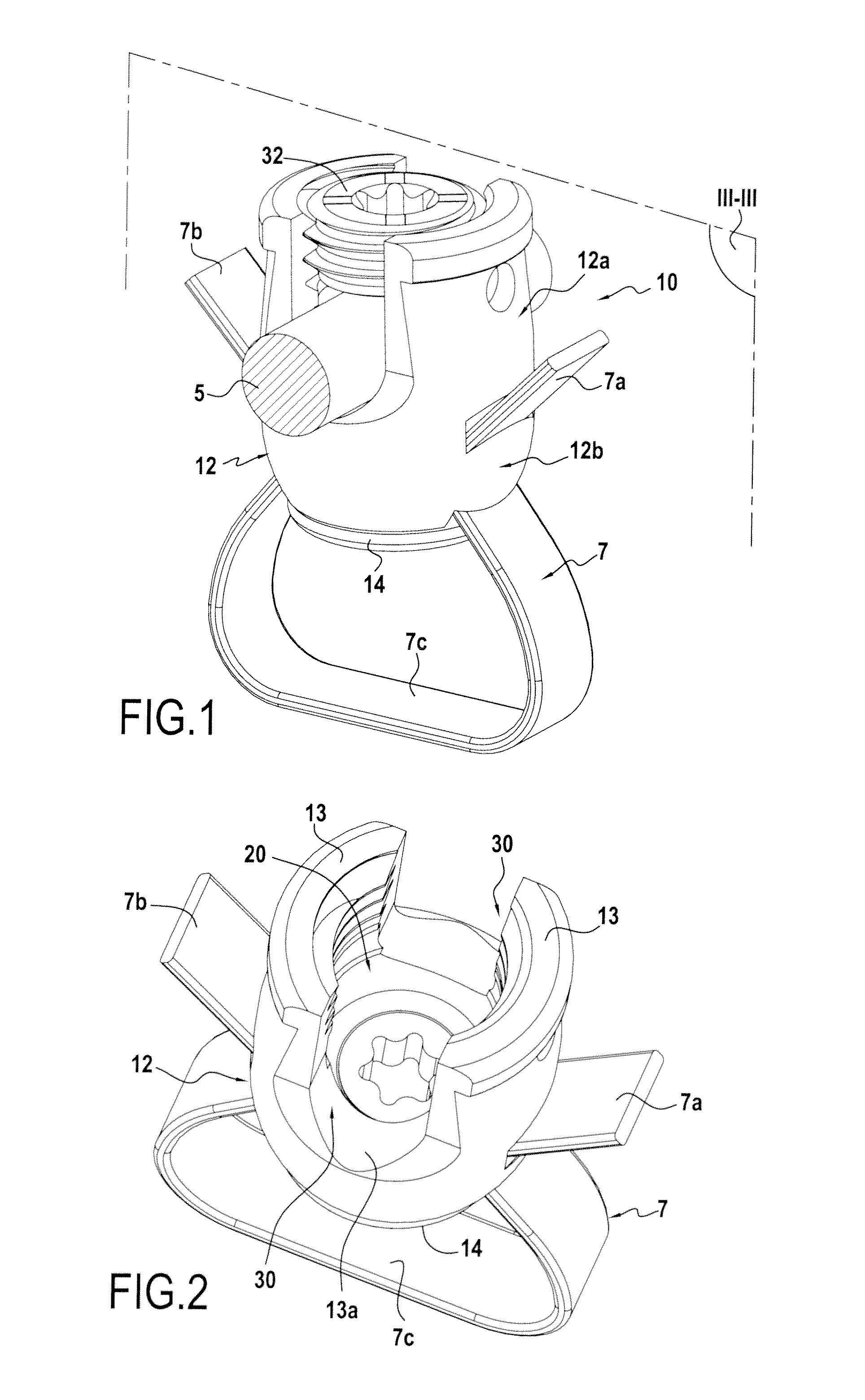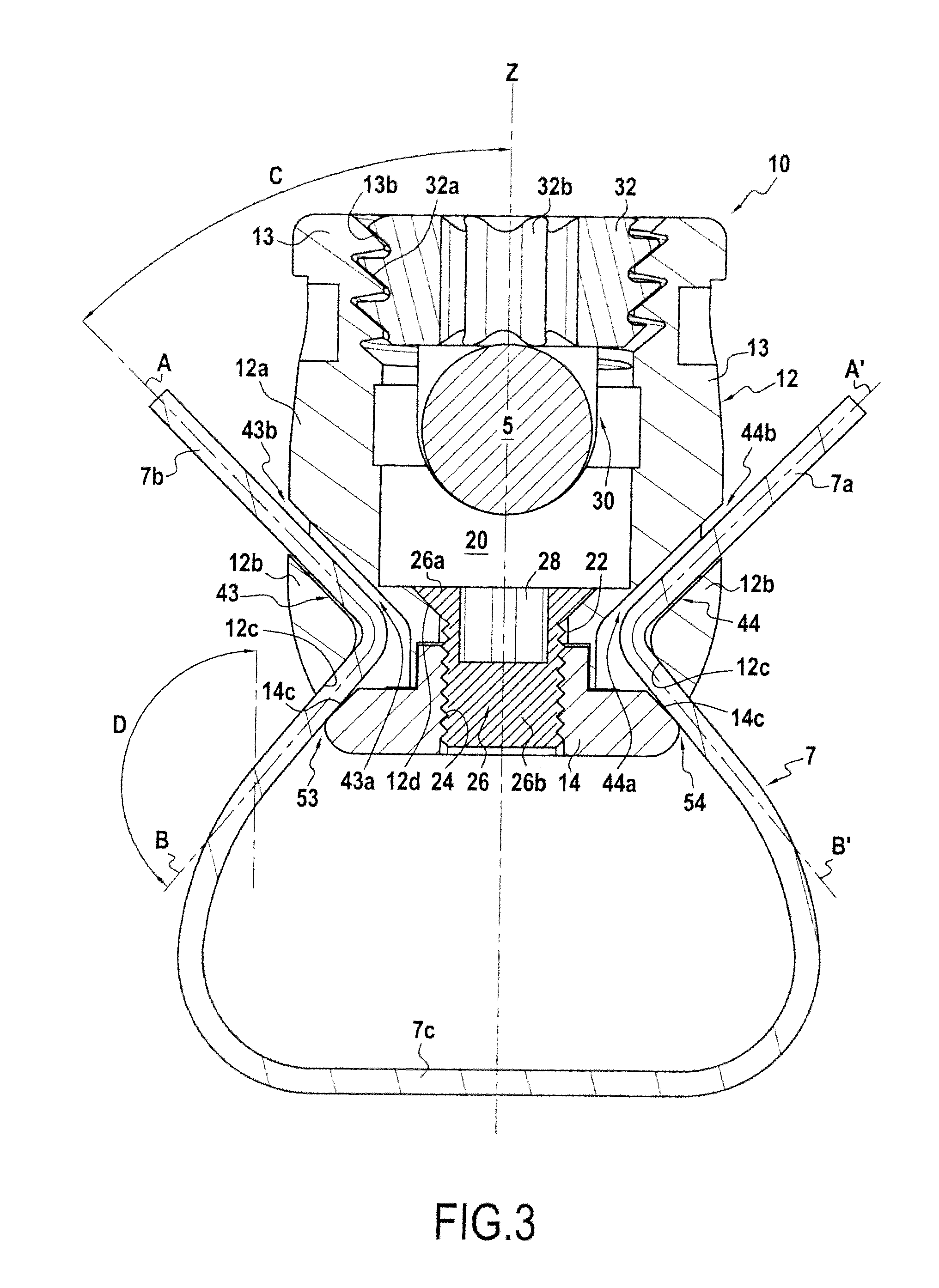Bone fixing system
a technology for fixing systems and bones, applied in the field of bone fixing systems, can solve the problems of paralysis of patients, damage or lack of purchase, and difficulty in using hooks, and achieve the effect of convenient handling
- Summary
- Abstract
- Description
- Claims
- Application Information
AI Technical Summary
Benefits of technology
Problems solved by technology
Method used
Image
Examples
Embodiment Construction
[0057]In the following detailed description, it is referred to the accompanying drawings showing several examples of bone fixing systems according to the present disclosure. It is intended that these examples be considered as illustrative but not limiting, the scope of the invention being given by the accompanying claims.
[0058]An example of bone fixing system is shown on FIGS. 1 to 3. The bone fixing system 10 is for fixing a rod 5 (a portion of which is shown in FIGS. 1, 3 and 15) to a bone (see FIG. 15). The bone may be, for instance, a lamina of a vertebra or a transverse process TP of a vertebra V, as shown in FIG. 15.
[0059]The bone fixing system 10 comprises[0060]a conformable elongate member 7, such as a ligature, having a first free end portion 7a, a second free end portion 7b, and an intermediate portion 7c therebetween, said intermediate portion 7c being adapted to surround the bone (e.g. the transverse process TP);[0061]a main body 12;[0062]first fastening device or means ...
PUM
 Login to View More
Login to View More Abstract
Description
Claims
Application Information
 Login to View More
Login to View More - R&D
- Intellectual Property
- Life Sciences
- Materials
- Tech Scout
- Unparalleled Data Quality
- Higher Quality Content
- 60% Fewer Hallucinations
Browse by: Latest US Patents, China's latest patents, Technical Efficacy Thesaurus, Application Domain, Technology Topic, Popular Technical Reports.
© 2025 PatSnap. All rights reserved.Legal|Privacy policy|Modern Slavery Act Transparency Statement|Sitemap|About US| Contact US: help@patsnap.com



